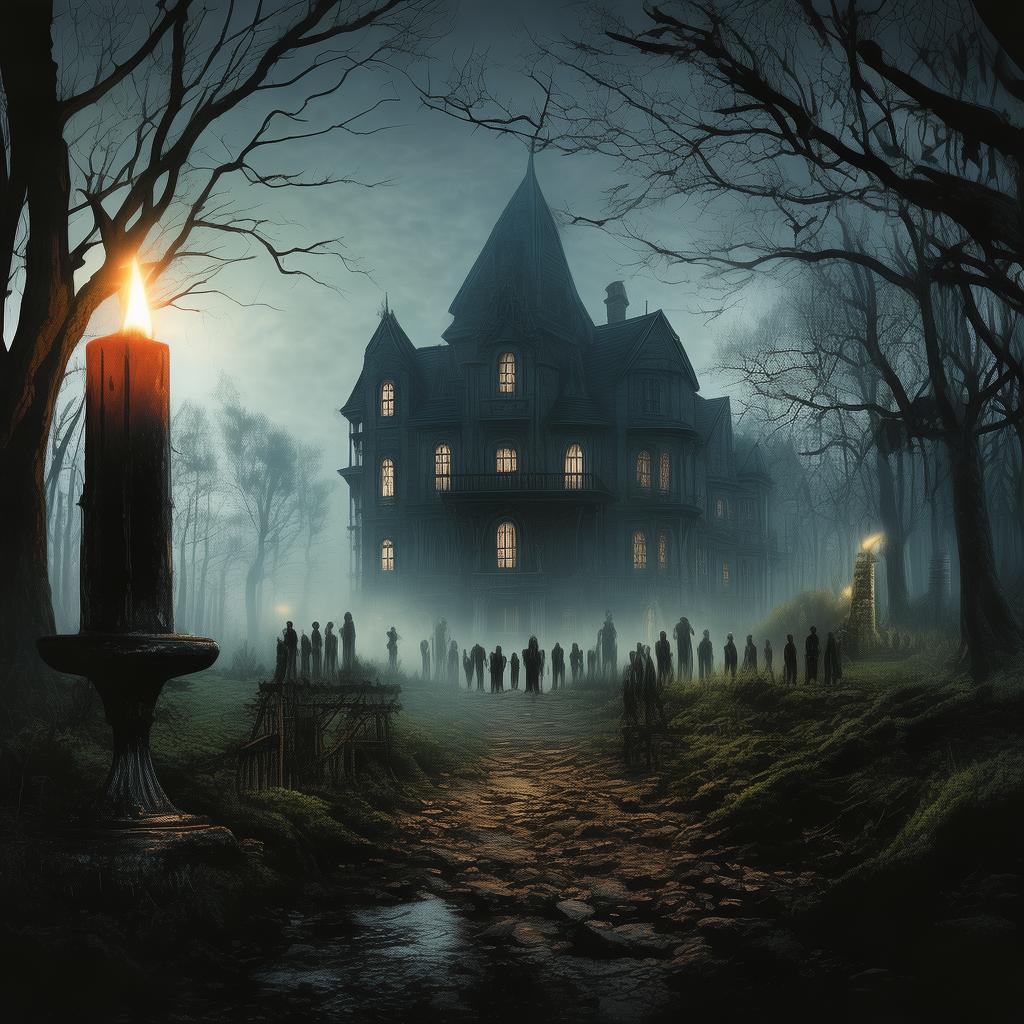The Iron Bars and the Phantom's Despair
In the heart of the ancient city of Jin, where the cobblestone streets whispered tales of the forgotten, there stood a dilapidated prison, its walls thick with the weight of centuries. The Iron Bars and the Phantom's Despair was a place where time stood still, a haunting testament to the city's dark past. The locals spoke of it with hushed tones, warning children away from its shadowy embrace.
In the depths of the prison lay Cell 13, a place of solitude and despair. It was here that Li, a man in his late thirties, found himself trapped. His skin was gaunt, his eyes hollow, and his spirit broken. He had been locked away for a crime he had not committed, a crime that had torn his life apart and left him a ghost among the living.
Li's only solace was the Phantom, a ghostly figure said to wander the cell, a phantom of a man who had once been as desperate as he was. The Phantom's Despair was the name given to the haunting that seemed to consume the cell, a specter that no one could banish.
One night, as the moon hung low and the wind howled through the broken windows, Li's cell was illuminated by a faint, flickering light. It came from an old, rusted key that had appeared in his hand. The key was unlike any he had seen before, with intricate carvings that seemed to tell a story of its own.
In the midst of his bewilderment, the Phantom appeared, a ghostly silhouette that seemed to move with an urgency that was almost palpable. "You must use this key," the Phantom's voice was a whisper, yet it echoed in Li's mind like a bell tolling.
Li's heart raced as he took the key and inserted it into the iron bars of his cell. With a creak and a groan, the bars began to shift, revealing a hidden passage. He stepped through, the air growing colder with each step, until he emerged into a narrow, dimly lit corridor.
The passage led him to a room filled with old books and scrolls, their pages yellowed with age. On the wall, a portrait of a man with a haunting resemblance to Li himself stared back at him. Beside the portrait was a note, written in an ancient script.
Li's eyes widened as he read the note. It spoke of a dark family secret, a secret that had been kept for generations. The man in the portrait was his great-grandfather, a man who had been framed for a crime he did not commit. The note revealed that the real culprit was his own grandfather, who had sought revenge on the family that had wronged him.
Li's mind raced with questions. How had his grandfather managed to frame his great-grandfather? What had driven him to such extremes? And most importantly, how could he uncover the truth and bring his grandfather to justice?
Li's quest for the truth led him on a harrowing journey through the underbelly of Jin. He encountered those who had been involved in the conspiracy, each one more sinister than the last. He was chased, beaten, and left for dead, but his resolve never wavered.

As the pieces of the puzzle began to fall into place, Li discovered that his grandfather's scheme had been far more elaborate than he had ever imagined. It had involved a network of informants, corrupt officials, and a web of lies that had spanned decades.
The climax of Li's quest came when he confronted his grandfather, a man who had become a twisted version of the father he had once known. In a tense and emotional confrontation, Li revealed the truth and demanded justice. His grandfather, caught in the web of his own deceit, had no choice but to admit his guilt.
The final act of Li's revenge was not one of violence, but of redemption. He forgave his grandfather, understanding that the man had been driven by a desire for revenge that had consumed him for so long. In forgiving his grandfather, Li also forgave himself, releasing the burden of the past and allowing himself to move forward.
The Iron Bars and the Phantom's Despair was not just a story of revenge, but of redemption and the power of forgiveness. Li's journey had changed him, transforming him from a man trapped in a cell to a man who had found his own way to freedom. The ghostly Phantom, once a symbol of Li's despair, now represented the liberation that had come from facing the truth and accepting his past.
As Li walked away from the Iron Bars and the Phantom's Despair, the weight of his chains fell from his shoulders, and he was free. The city of Jin, with its dark secrets and haunting past, would never forget the man who had faced his demons and emerged victorious.
✨ Original Statement ✨
All articles published on this website (including but not limited to text, images, videos, and other content) are original or authorized for reposting and are protected by relevant laws. Without the explicit written permission of this website, no individual or organization may copy, modify, repost, or use the content for commercial purposes.
If you need to quote or cooperate, please contact this site for authorization. We reserve the right to pursue legal responsibility for any unauthorized use.
Hereby declared.









